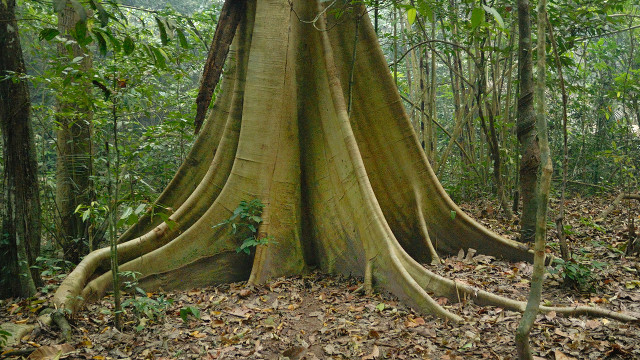SUMMARY
This is AI generated summarization, which may have errors. For context, always refer to the full article.

MANILA, Philippines – The Department of Environment and Natural Resources (DENR) has signed a memorandum of agreement with the National Bureau of Investigation (NBI) to ensure the conviction of illegal logging suspects.
The conviction rate in illegal logging cases has been low, with mostly mere runners of the big-time players being jailed, prompting the need for better-coordinated efforts from enforcement and prosecution agencies.
The agreement – signed by Environment Secretary Ramon Paje, Justice Secretary Leila de Lima, and NBI Director Virgilio Mendez – allows the DENR to tap the NBI’s Environmental Crime Division (NBI-EnCD) in building strong cases against offenders.
The agreement was circulated through concerned agencies last April but was made public only on Wednesday, September 10, after it was finalized.
“It’s clear that the best deterrence to illegal logging is the certainty of detection and conviction,” Paje said.
Airtight cases are needed to convict offenders, who, after arrest for illegal logging, are able to walk free due to loopholes, technicalities, or lack of evidence to support the case.
Help from seasoned investigators
From the 1,294 cases of violation of the Philippine Forestry Code, only 191 persons have been convicted, according to DENR records.
Paje has also admitted in previous statements that most of those arrested and convicted for illegal logging are the drivers, runners, or employees of the big-time players.
Under the MOA, the NBI-EnCD will provide technical expertise in planning specific investigations and filing of criminal and administrative charges against suspected illegal loggers, their financiers and backers from government.
“This partnership will enhance both the DENR’s and NBI-EnCD’s operational capabilities to help keep the momentum gained so far by the Aquino administration in addressing the illegal logging trade, which is undertaken by criminal networks and has dangerous social, environmental and economic impacts,” said Paje.
The NBI-EnCD has worked with the DENR before. It helped prosecute black sand mining suspects arrested in Northern Luzon and Bicol. It also played a role in the agency’s campaign against illegal wildlife trade.
It became illegal to cut trees in all natural and residual forests in the country after President Benigno Aquino III signed Executive Order 23 in 2011.
Since EO 23, DENR claims the number of illegal logging hotspots has been reduced by 84% – from 197 to 31.
At least 27.9 million board feet of illegally cut wood worth P1.118 billion (US$25.5 million) has also been apprehended.
Aggressive and often unregulated logging in the Philippines since the 1960s has reduced the original forest cover of the country to around 30%. (READ: Illegal loggers cut down 1,000 endemic trees in Negros)
Because of this, the Philippines now has the second smallest forest cover in Southeast Asia, after Singapore. – Rappler.com
Dipterocarp tree image from Shutterstock
Add a comment
How does this make you feel?
There are no comments yet. Add your comment to start the conversation.